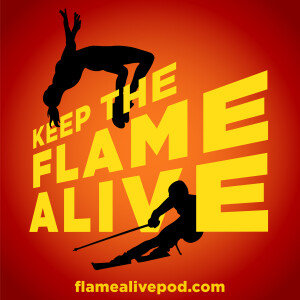
LEXI Founder Giles Long Explains the Paralympic Classification System
 2019-08-22
2019-08-22
Photos courtesy of Giles Long and Lexicon Decoder Ltd 2011-2019.
It's one year until the Tokyo 2020 Paralympic Games! As we start to prepare to watch these Games, which run from August 25-September 6, one thing stood out in our memories from watching Rio 2016: What's up with all of those classifications?
Along with doping tests, para athletes have to undergo classification tests so that they're placed into competitive groups that all have similar limitations. Unfortunately for the casual viewer, they seem to be random letters and numbers that don't make much sense, particularly when you're watching four different finals of the same distance race.
We wanted to learn more about this system, so we talked with Giles Long MBE. Giles is a seven-time medalist Paralympian in swimming, including three golds. Giles also heard people's frustration with understanding the classification system, so he created LEXI, a graphical system that quickly explains what each class is so that you can better enjoy the competition at hand.
You can learn more about Giles at his website or follow him on Twitter and Insta.
If you've wondered whether para athletes try to work the classification system in their favor, Paralympics Australia recently released a mandatory online course for its para athletes about this very topic! It doesn't happen often, but there's certainly a concern that someone would do this in order to win.
Links from our Team Olympic Fever Update:
Lou Jones has some updates on his panAFRICAproject More info on how to support John MacLeod's fundraiser to produce his films Jacqueline Simoneau is an ambassador for this year's Tough Mountie Challenge in Montreal in OctoberIf you liked this episode, you may also like:
Episode 23: Paralympic XC Skiing and Biathlon with Robert WalshWe have a new way to support the show! If you'd like to give a one-time contribution, we now have a Paypal button on our website. You can also still join Patreon and get extra thank you gifts for being one of our patrons. Your contributions really help us be able to continue producing the show -- each episode takes a good 20-25 hours to produce, and these funds help us have the time and ability to continue creating the show.
More Episodes
 2021-12-03
2021-12-03
 2021-11-19
2021-11-19
 2021-10-08
2021-10-08
 2021-10-01
2021-10-01
 2021-09-24
2021-09-24
 2021-09-17
2021-09-17
 2021-09-10
2021-09-10
 2021-09-05
2021-09-05
 2021-09-04
2021-09-04
 2021-09-03
2021-09-03
 2021-09-03
2021-09-03
 2021-09-02
2021-09-02
 2021-08-31
2021-08-31
 2021-08-30
2021-08-30
Create your
podcast in
minutes
- Full-featured podcast site
- Unlimited storage and bandwidth
- Comprehensive podcast stats
- Distribute to Apple Podcasts, Spotify, and more
- Make money with your podcast
It is Free
- Privacy Policy
- Cookie Policy
- Terms of Use
- Consent Preferences
- Copyright © 2015-2024 Podbean.com




